Ireland's Attitude Towards the COVID-19 Tracing App
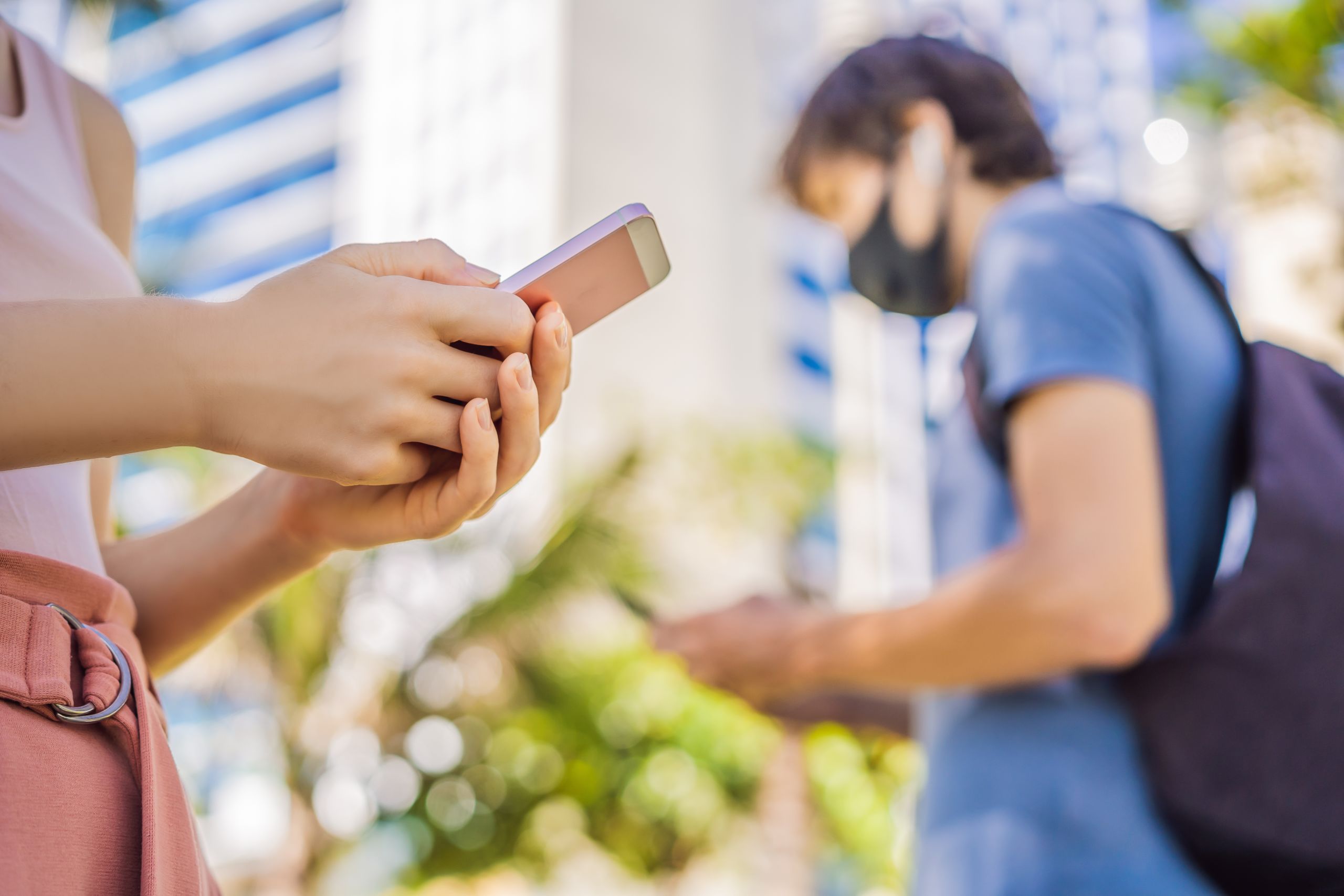
How do Irish People feel about a Contact-Tracing App?
In June 2020, University of Galway, UL and Lero launched the "National Survey of attitudes to COVID-19 Digital Contact Tracing in the Republic of Ireland" to investigate Irish People's attitude towards the Contact Tracing apps, used internationally to help manage the spread of COVID-19.
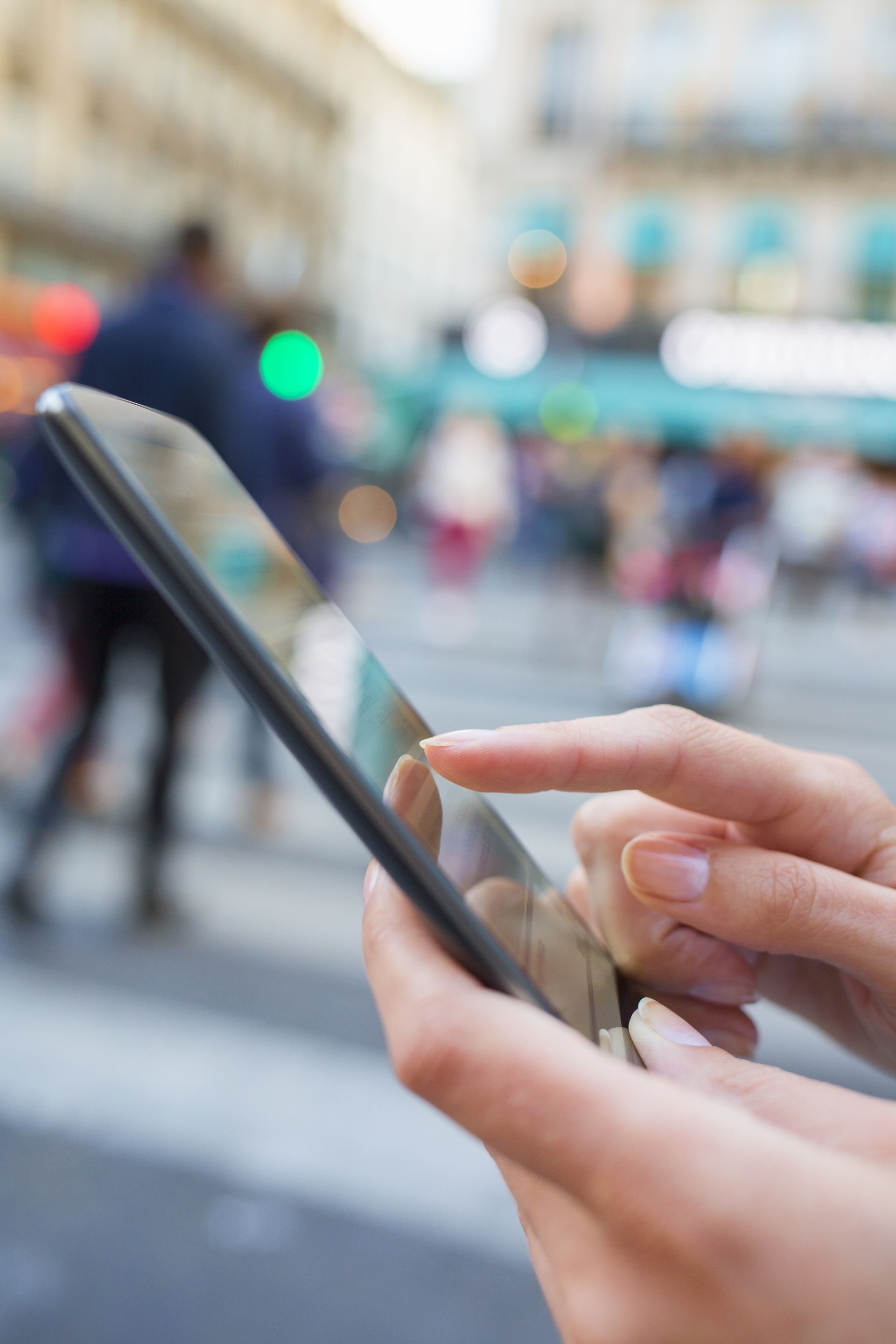
Findings - June 2020:
According to the research carried out on 8,000 Irish adults by a team from Lero, the Science Foundation Ireland Research Centre for Software, University of Limerick (UL) and University of Galway, it was found that;
98% of the more than 8,000 respondents stated that they understood the concept of contact tracing.
96% stated that informing the HSE of your close contacts is important if you develop COVID-19.
The vast majority of Irish adults – 82% – are willing to download a contact tracing app to their smartphone to curb the COVID-19 pandemic.
This Science Foundation Ireland funded research also shows 51% of respondents indicated they “definitely will install” the app if it becomes available, 31% indicated they “probably will install” the app. Ten per cent reported they “may or may not install” the app.
People preferred the idea of a Bluetooth app, with just 31% stating that they would prefer an app that uses geolocation technology.
Respondents also expressed several privacy concerns, including that the Government, tech firms or hackers might use the information gathered for other purposes after the pandemic.
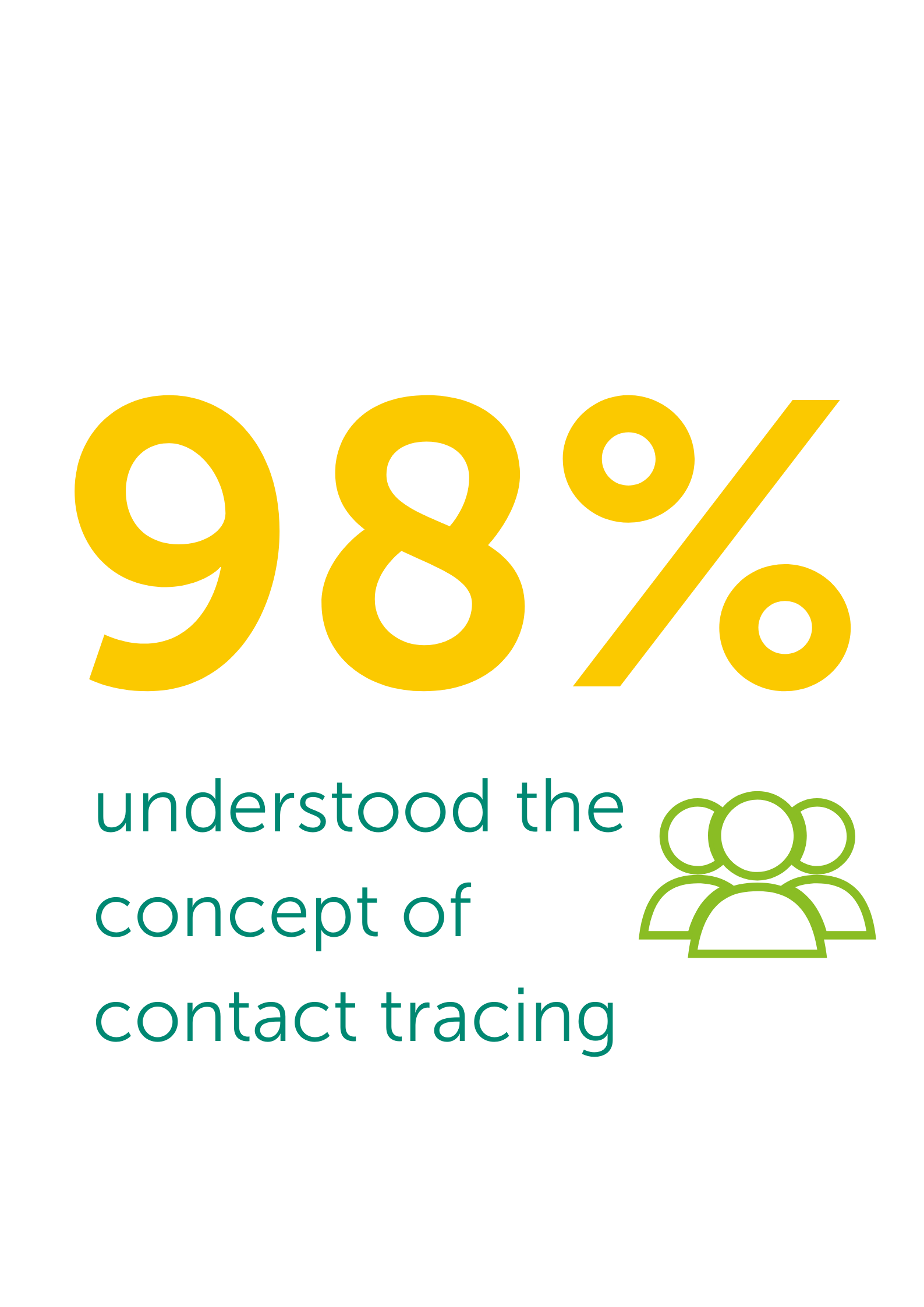
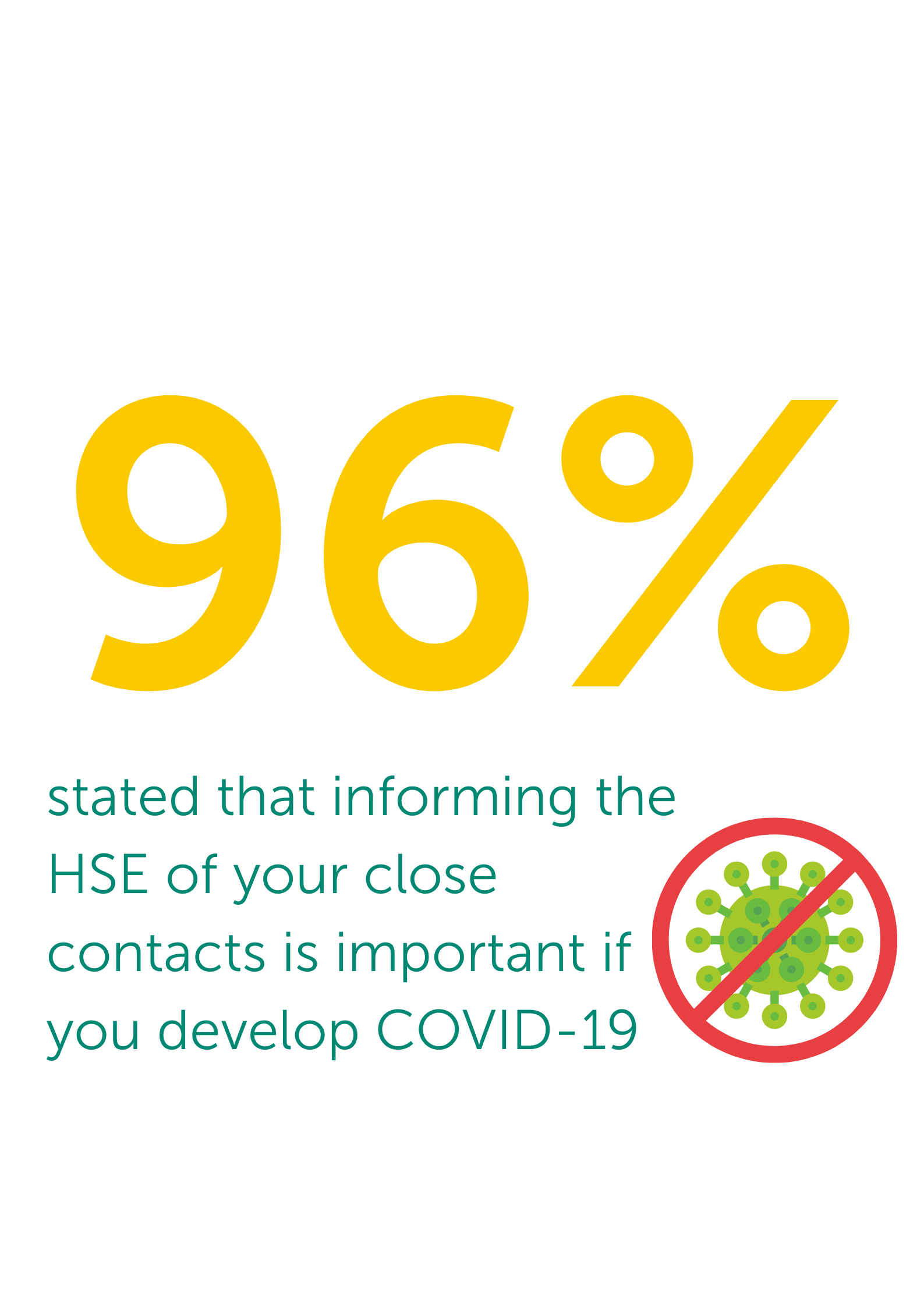
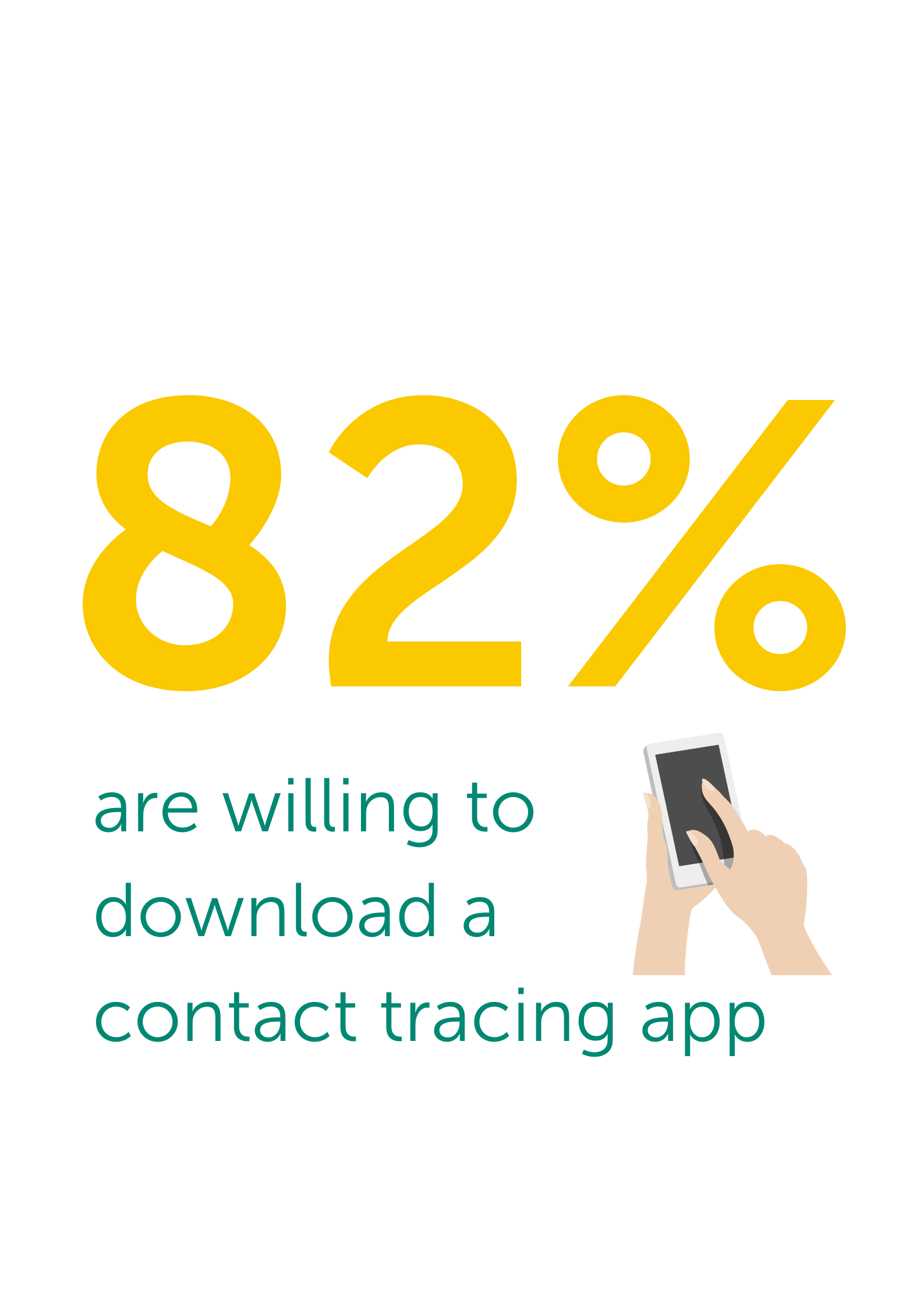
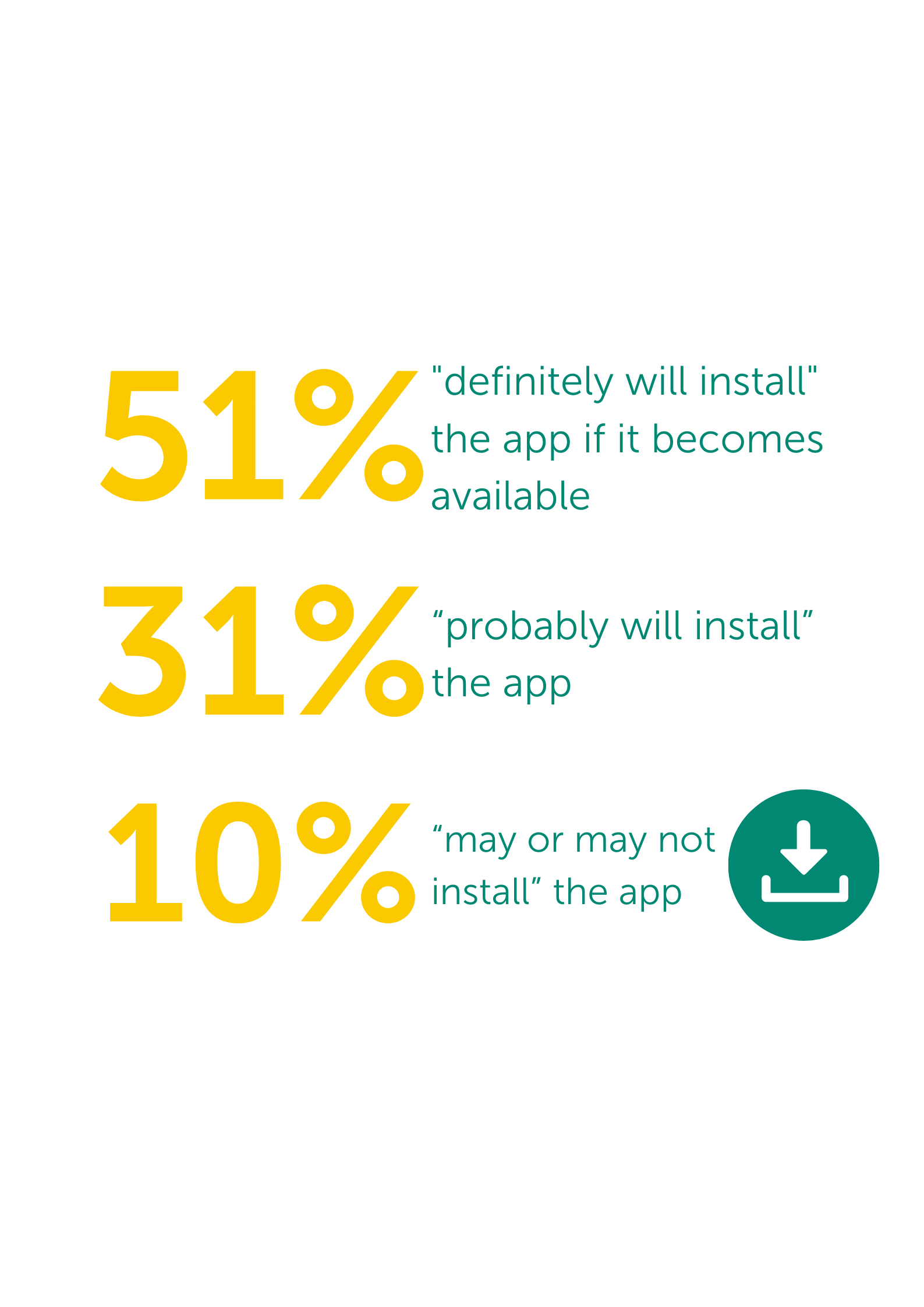
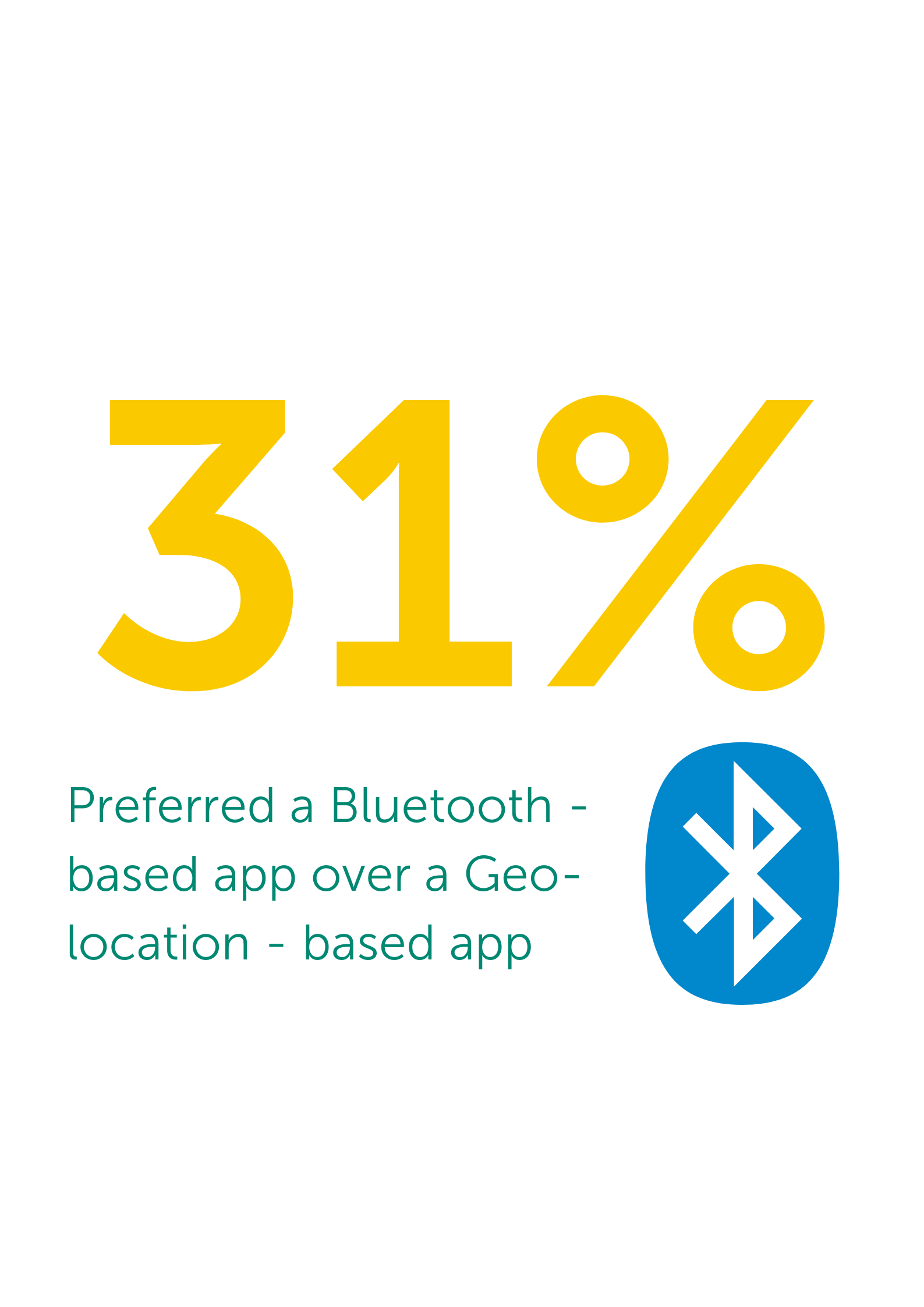
Lero’s Dr Jim Buckley said the response was very heartening considering that researchers from the University of Oxford estimated that, if 56% of people were to download an ideal contact tracing app in the UK, this would be enough to control the disease by itself.
It seems, Dr Buckley said, the primary driver for people’s willingness to download a public-health-backed, contact tracing app during the current crisis is a desire to help others and “for the greater good”.
“Studies in other jurisdictions have suggested that the actual adoption rate typically lags behind the take-up rate suggested by surveys performed in advance of contact-tracing apps’ launches. Therefore, there is no room for complacency and eliminating the disease requires a high degree of participation from the public and evidence-based app development.”
“Concerns regarding battery life and Bluetooth led some respondents to suggest that a means to automatically enabling Bluetooth when users leaves their home or workplace should be integrated into the app. Another suggestion involved setting times for the app to be active, which could be entered by the user in advance according to their work, travel or shopping schedule,”
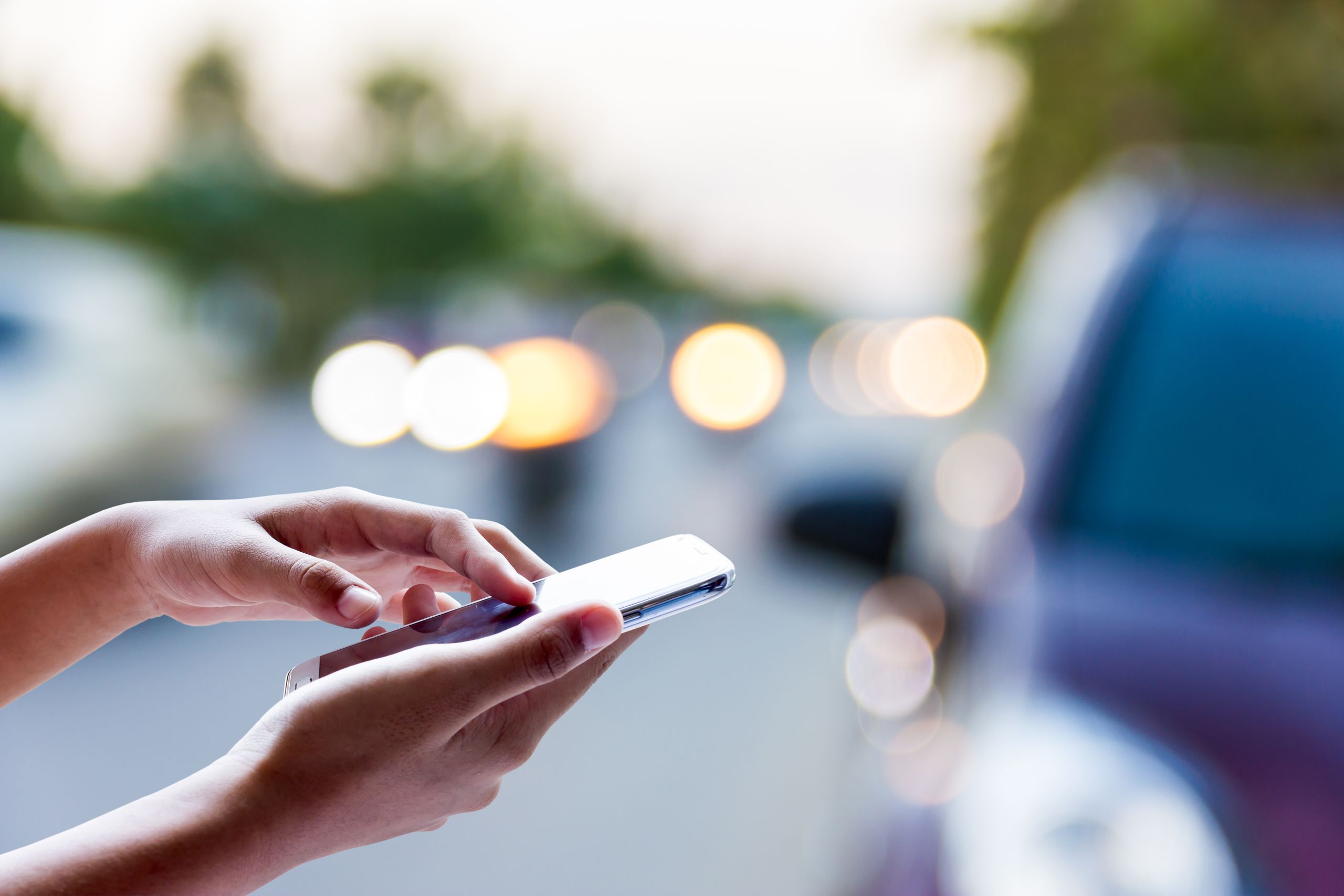
Uncertainty over the HSE COVID Tracker App
In December 2020, the COVIGILANT team released their second set of findings, indicating that Irish people were unsure of the benefits of the HSE app.
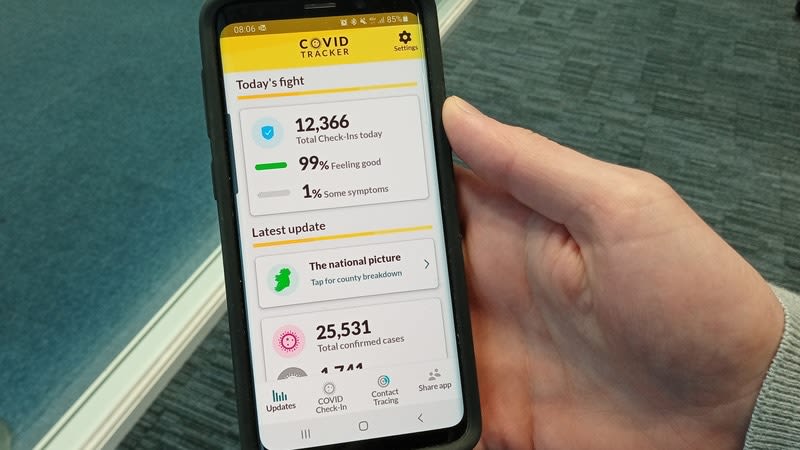
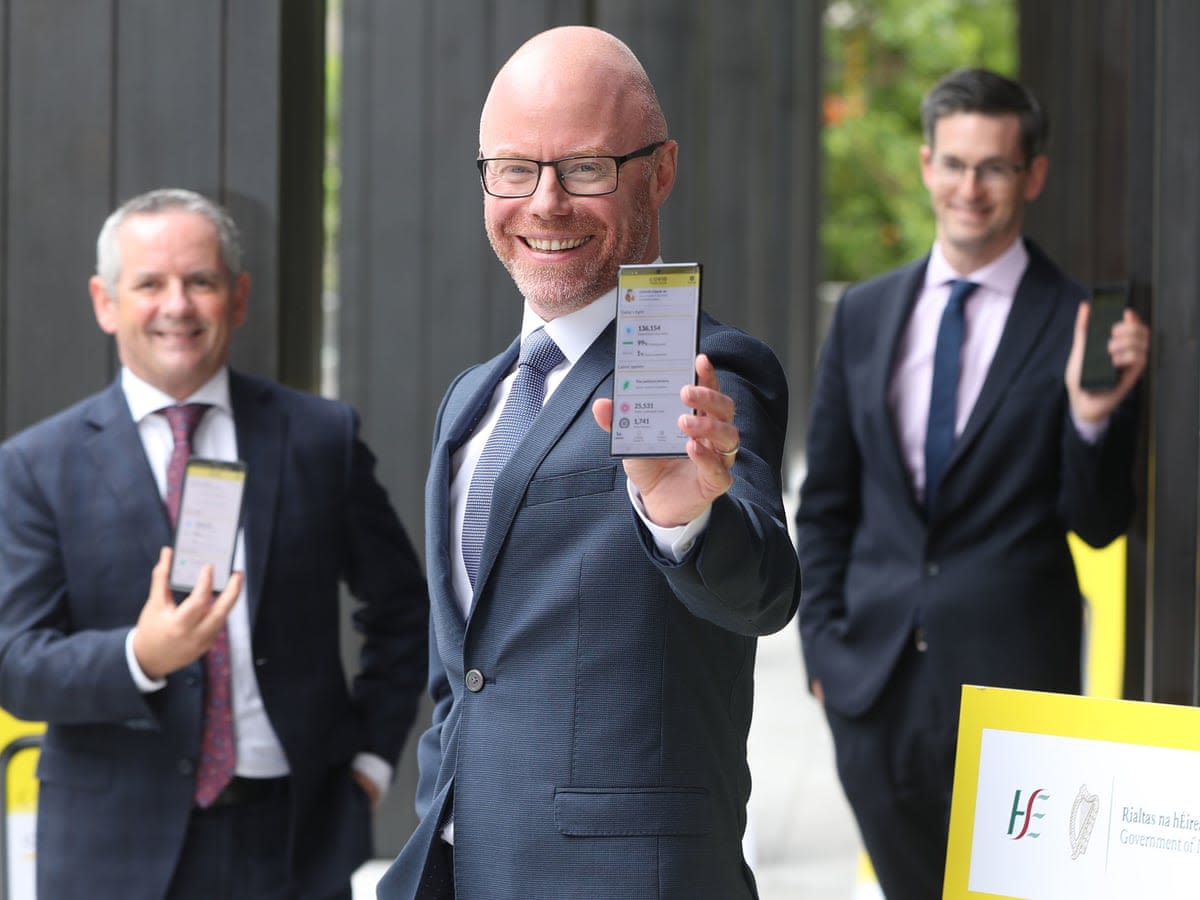
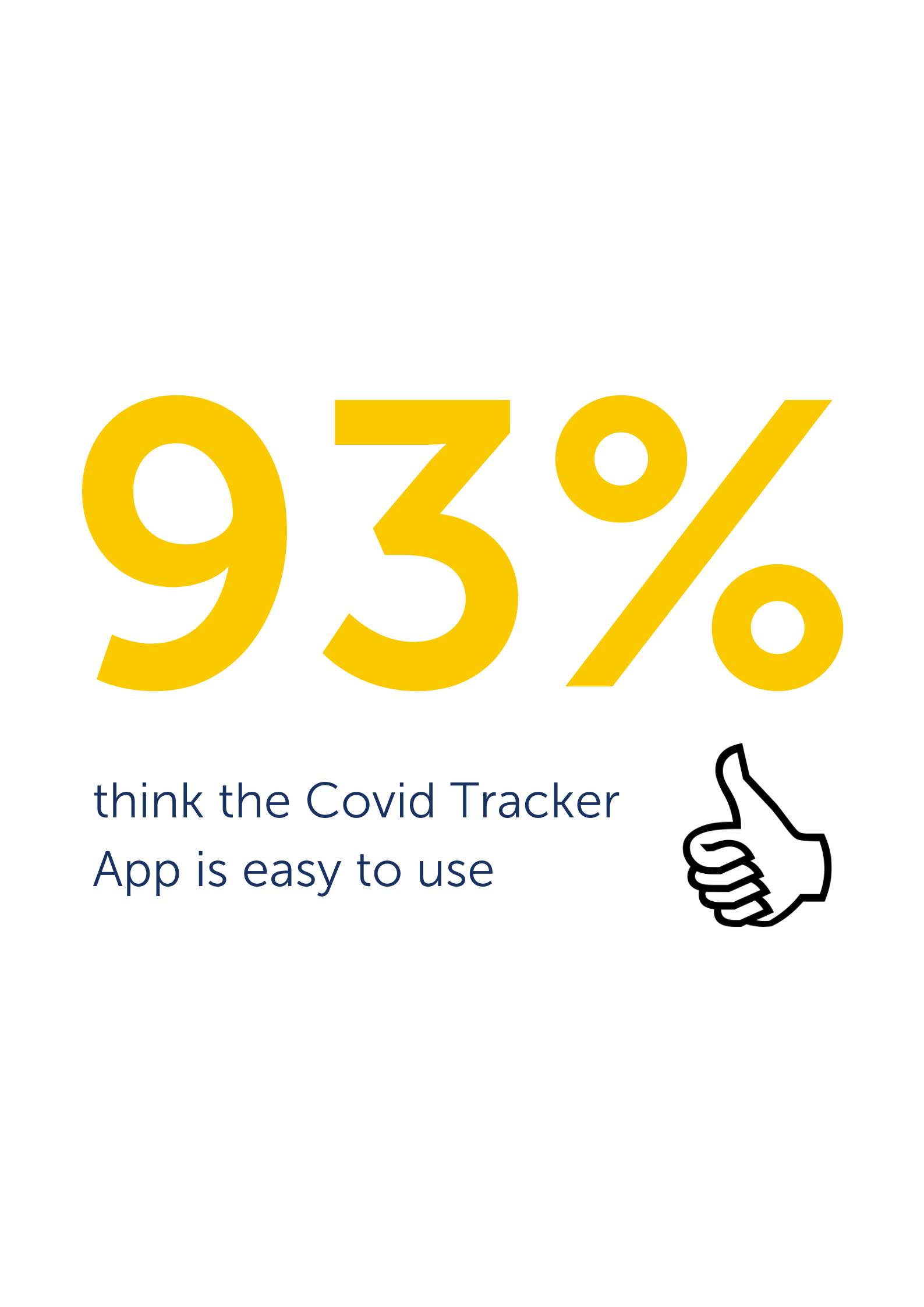
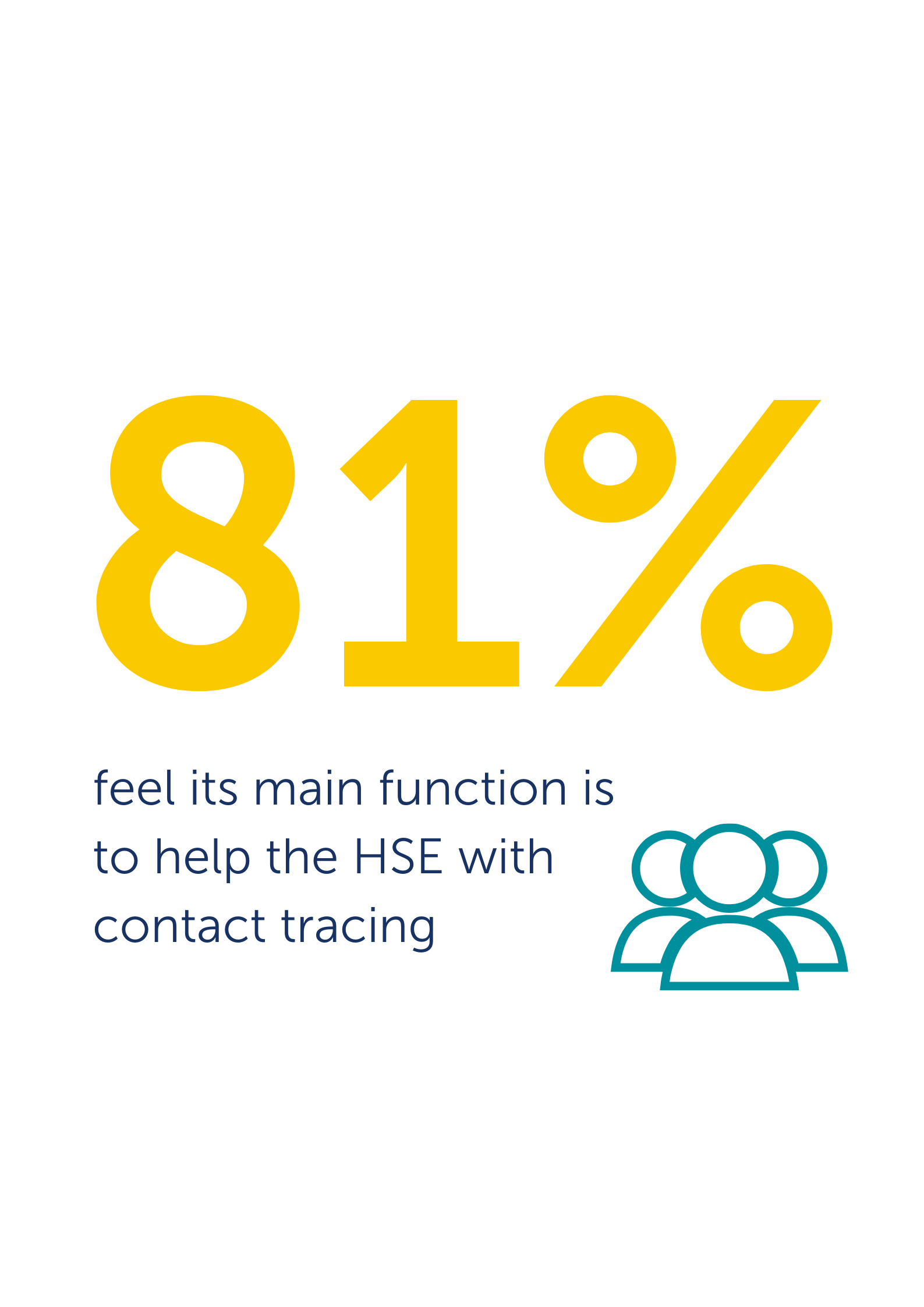
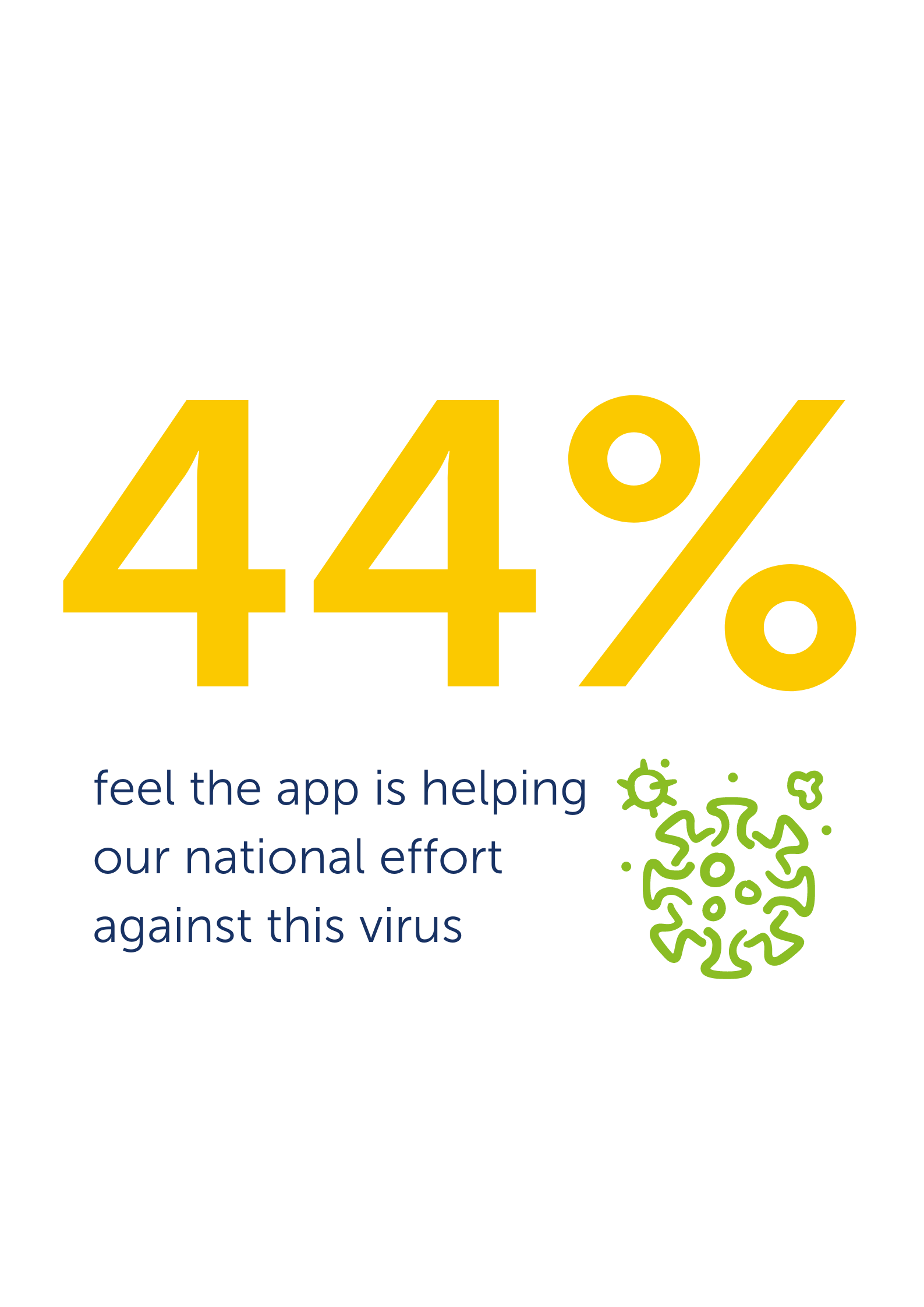
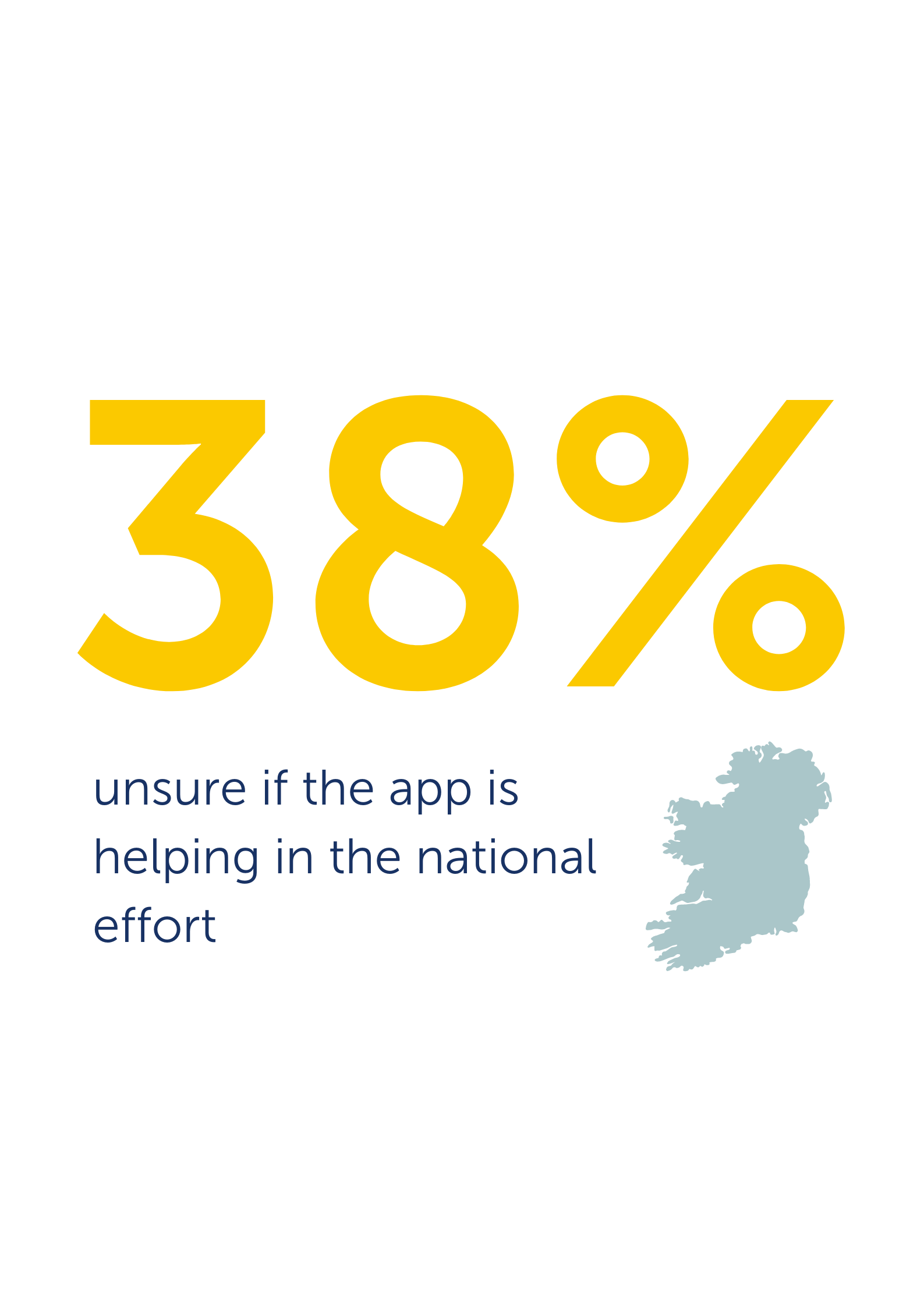
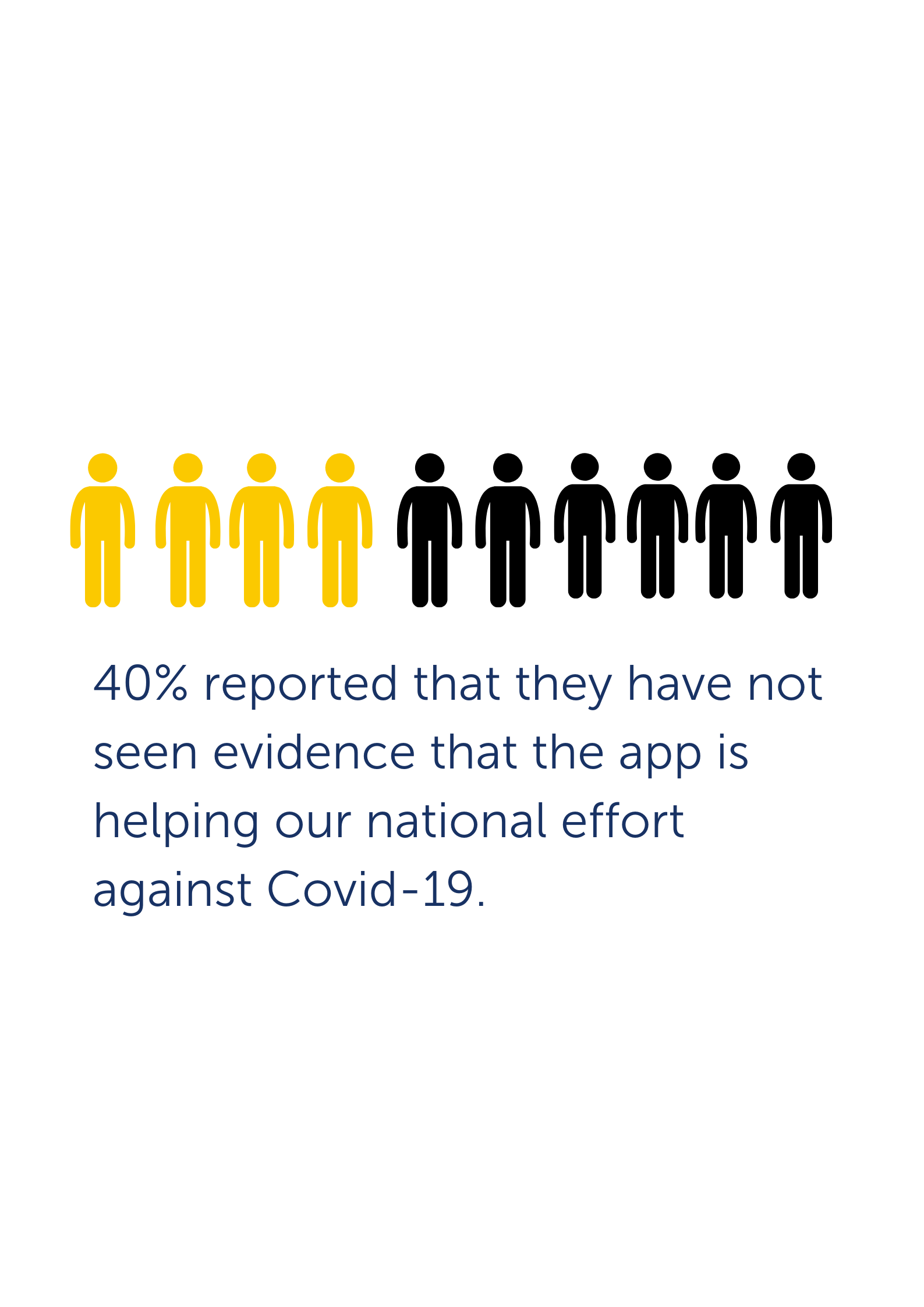
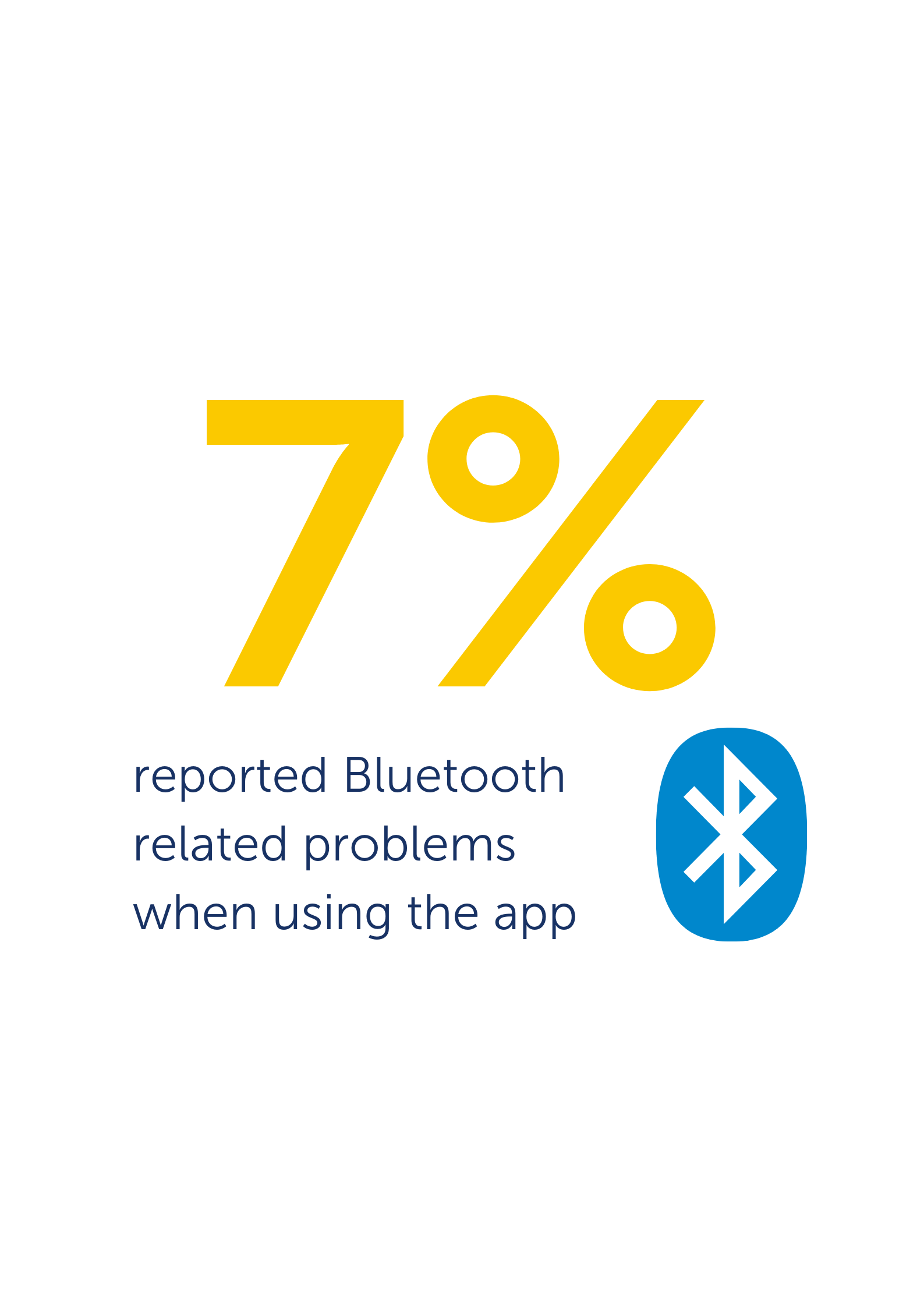
The HSE Covid Tracker App was launched in early July and currently has over 1.3 million active users.
More than 5,500 people who have tested positive for Covid-19 since July have been able to warn other contacts who have the app that they may have recently been exposed to the virus.
This means that more than 10,000 app users were warned about a Covid-19 contact that they may potentially have been unaware of.
Findings - December 2020:
The online survey by the COVIGILANT research group, led by University of Galway, UL and Lero received more than 2,800 responses. It showed:
93% think the Covid Tracker App is easy to use and 81% feel its main function is to help the HSE with contact tracing.
44% (1265) of respondents feel the app is helping our national effort against this virus.
38% (1089) are unsure if the app is helping in the national effort.
40% (1158) of respondents reported that they have not seen evidence that the app is helping our national effort against Covid-19.
7% reported Bluetooth related problems when using the app, with battery life issues being the main issue of concern.
“Contact tracing and asking people to reduce their social contacts is hugely important in reducing spread of the coronavirus. The Covid Tracker App is designed to strengthen our contact tracing system but a consistent message we are hearing from our survey is that many users of the app are yet to be convinced that it is helping.”
“While the vast majority of people say the app is user friendly and well designed, many of our survey respondents would like to see more detail from the HSE as to the effect it is having. However, it is very difficult for the HSE to give a detailed picture of where and how the app is helping, as it is specifically designed to protect peoples’ privacy. As we need to use every tool available against this virus, we hope our research will highlight the need to inform the general public about the usefulness of the app. Simply put, the more people trust it and use it, the more contacts it will pick up and the more it can make a difference. The survey signals a need to strengthen the communications around the benefits of the app, but it is also further proof that the app is living up to its security and privacy commitments. These are hugely important aspects in order to reassure the public.”
“As we try to open up society and the economy further next year, increasing our social contacts will mean increased risk of Covid-19 transmission. The app is potentially at its most powerful in crowded areas where people don’t necessarily know each other and where it can warn of anonymous contacts. We feel ongoing public health messaging about the app and reassurance around the data security and privacy features will be vitally important if the Irish public are going to continue to use this app into the new year.”
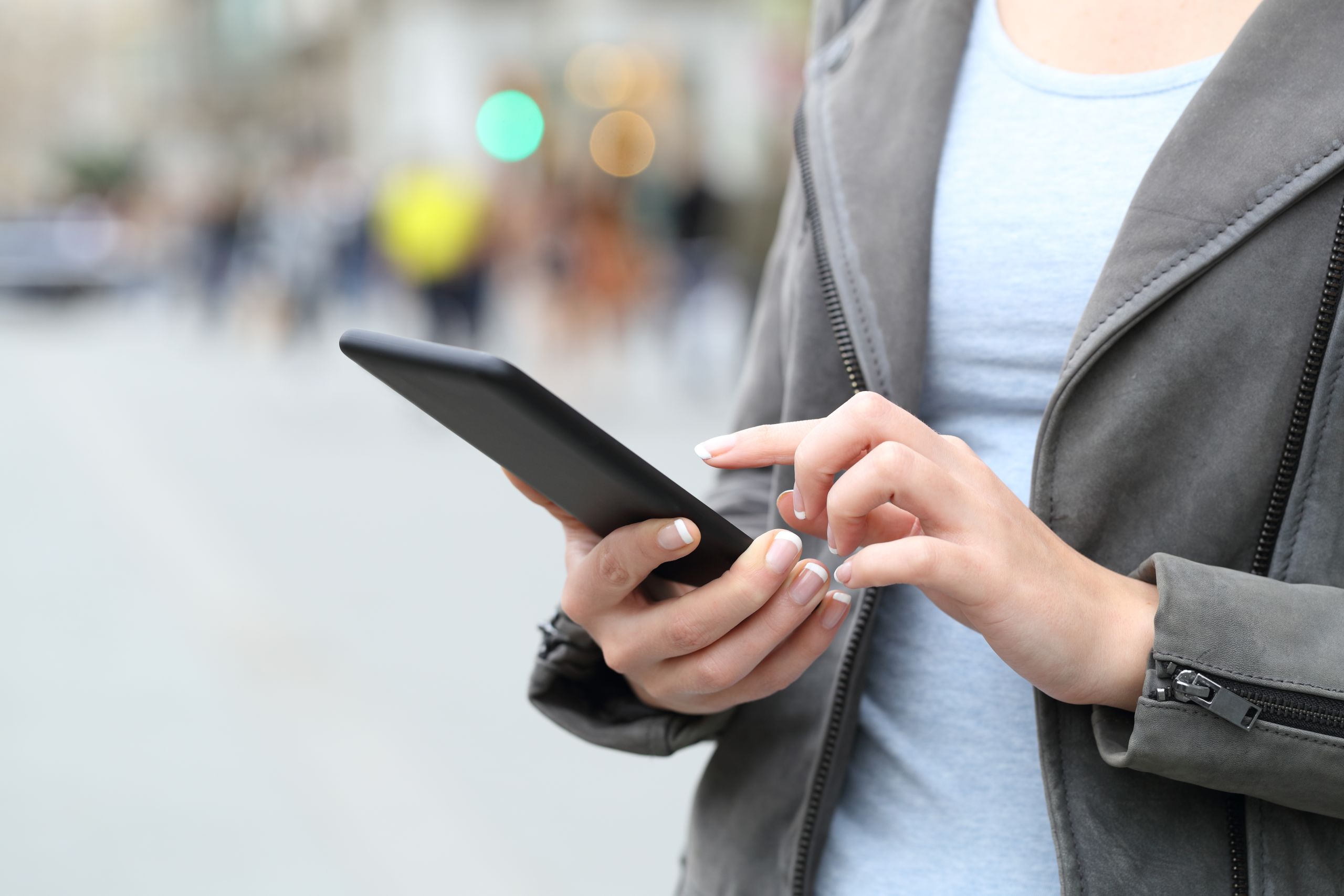
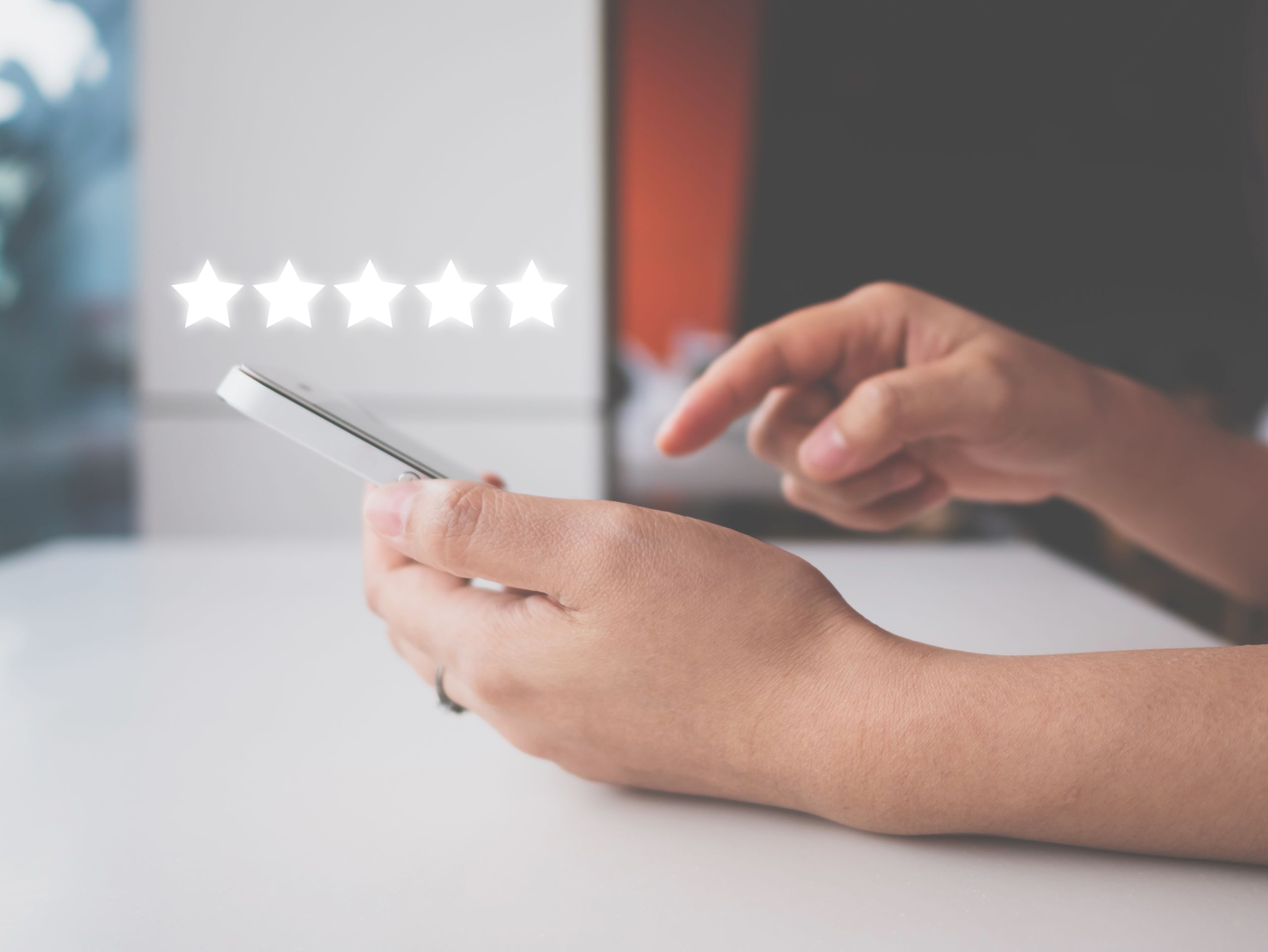
Findings - March 2021:
In March 2021, COVIGILANT analysed 1,287 user reviews from the Google/Apple playstores "to identify the aspects of the app that users focused on, and the positive/negative sentiment expressed".
It found that while there was a largely positive sentiment towards the app, and users thought it handled data protection and transparency aspects well, people wanted more targeted feedback on the incidence of the virus, and facilities for more proactive engagement, like notifications that prompt users to submit their health status daily.
The “android battery” issue, where users found their battery drained rapidly, was also raised, as well as the backward-compatibility issue with iPhones which seriously impacted retention/uptake of the app.
"Most of the 'negative' comments were aimed at performance and usability," the study said.
However, overall the view from users was largely supportive and in many cases people were impressed by the idea of the app and its execution. Some of those who offered a review even offered potential ideas for further development.
"An interesting idea that arose in two reviews was that the app should also report on the number of close contacts users had per day, where the user could get daily feedback and thus try to minimize that 'score' over time."
"This is analogous to the gamification concept of 'streaks' where a user might aim to keep their number of close contacts below a certain daily threshold, over time, and thus continue their 'streak'."
Newer versions of the app have already tweaked its performance and according to the study, which has been published in the Irish Journal of Medical Science: "The actual findings of this research suggest that the contact tracing apps, which are largely passive in nature should have proactive notifications, and that they should provide timely and detailed disease-spread information to the users, to keep those users more engaged."
(Source: The Irish Examiner)
